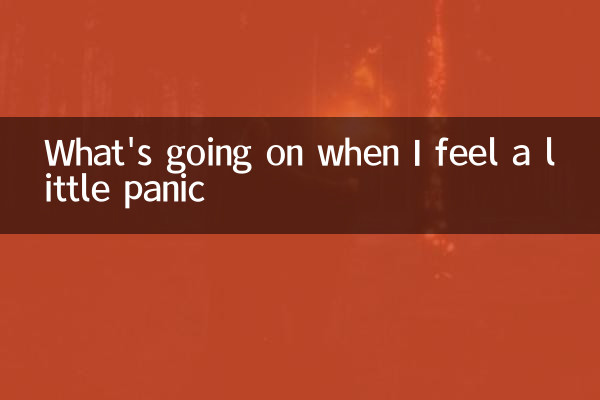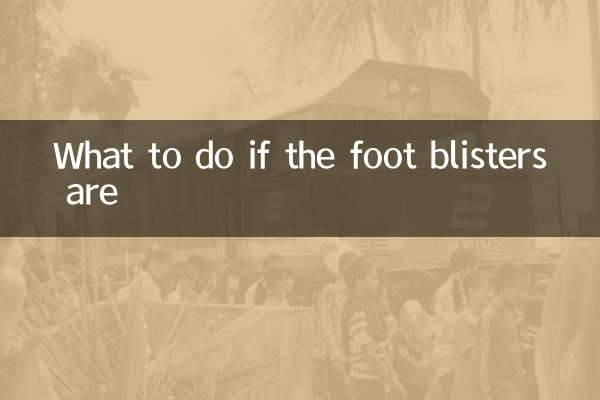What's going on when I feel a little panic
Recently, many people have reported that they often feel palpitations, anxiety, and even symptoms such as insomnia. This phenomenon may be related to recent social hotspots, life pressures or health problems. The following is a compilation of popular topics and hot contents on the entire network in the past 10 days. Combining psychology and medical knowledge, we will analyze the possible reasons for "a little panic" and how to deal with it.
1. The relationship between recent hot topics and panic

The following is a compilation of hot topics on the Internet in the past 10 days. Some of the contents may be related to palpitations and anxiety:
| Hot Topics | Correlation analysis |
|---|---|
| Global stock market volatility intensifies | Economic uncertainty may trigger anxiety |
| A sudden natural disaster occurred in a certain place | Disaster news can trigger insecurity |
| A star's sudden health problem | Health anxiety may be triggered |
| Breakthrough in artificial intelligence technology | Worries about future careers may increase |
| A major traffic accident occurred in a certain place | Feel safe and impacted |
2. Common causes of panic
Palpitation is a subjective feeling that may be caused by a variety of factors:
| Cause Type | Specific performance |
|---|---|
| Psychological factors | Anxiety, stress, fear and other emotions |
| Physiological factors | Hypoglycemia, anemia, abnormal thyroid function |
| Living habits | Excessive caffeine intake and insufficient sleep |
| Environmental factors | Noise pollution, air pollution |
| Drug Factors | Side effects of certain drugs |
3. How to deal with panic
If you feel nervous often, try the following:
1.Adjust breathing: When you feel panic, try to take a deep breath, inhale for 4 seconds, hold your breath for 4 seconds, exhale for 6 seconds, and repeat several times.
2.Reduce stimulus sources: Limit negative news intake, especially before bedtime.
3.Regular work and rest: Ensure adequate sleep and avoid staying up late.
4.Moderate exercise: Regular exercise can help relieve anxiety.
5.Seek professional help: If palpitations occur frequently or are accompanied by other symptoms, seek medical treatment in time.
4. When do you need medical treatment?
It is recommended to seek medical treatment immediately in the following situations:
| symptom | Possible serious problems |
|---|---|
| Palpitations are accompanied by chest pain | Heart problems |
| Palpitations are accompanied by difficulty breathing | Lung or heart problems |
| Palpitations are accompanied by confusion | Neurological problems |
| Continuous panic | Drug treatment may be required |
5. Psychological adjustment method
1.Mindfulness meditation: Spend 10-15 minutes of mindfulness practice every day.
2.Emotional Diary: Record events and emotions that trigger panic.
3.Social support: Share your feelings with people you trust.
4.Limit news browsing time: No more than 1 hour a day.
5.Cultivate interests and hobbies: Divert attention to positive things.
6. Summary
Palpitation is a common psychophysiological reaction that may be caused by a variety of factors. Recent social hot events may have aggravated people's anxiety. Most palpitations can be relieved by understanding the causes and taking appropriate responses. If the symptoms persist or worsen, it is recommended to seek medical examination in a timely manner.
Remember, focusing on mental health is just as important as focusing on physical health. In this era of information explosion, learning to manage your emotional response is a must-have life skill.

check the details

check the details